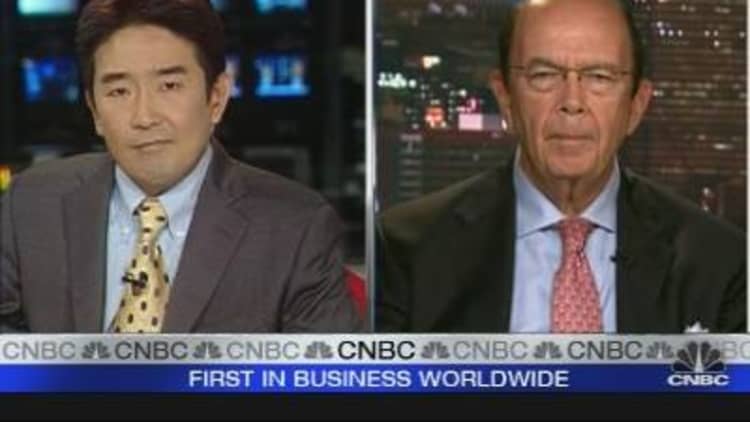Wilbur Ross, chairman & CEO WL Ross & Co., says President Obama's proposed tax changes that target U.S.-based global companies, will be a huge mistake, as they will hurt U.S. corporations dependent on overseas growth and sales.

Obama plans to tighten tax rules on overseas activities, saying the changes are long-overdue
fixes to curb abuses.
(Watch the full Wilbur Ross and David Roche interview on the left)
"Well, we don't know the full details of them just yet, but apparently what he's trying to do is to curb what he views as inappropriate measures taken to limit taxation," Ross told CNBC.
In part, Ross explains, this is to stop large financial institutions from helping American citizens evade their U.S. taxes through a variety of offshore accounting methods.
"The part that's more complicated is about the corporations. And it almost sounded as though he was intending to be punitive on corporations that had extensive overseas operations. To the degree that that's true I think it would be a huge mistake, because one of the reasons that many of the U.S. corporations are prospering is in fact their participation in the more rapidly growing markets overseas. And I think that's a very dangerous slope," Ross said.
Obama, intends to raise $210 billion over a decade by revising a tax policy that lets companies defer income earned abroad, and by closing a loophole that administration officials say lets firms hide foreign subsidiaries.
David Roche, global strategist at Independent Strategy, thinks the reason why Obama is pursuing this so aggressively is very simpl--money.
- Obama Seeks End of Tax Breaks for US Firms Overseas
"First of all, the Obama administration is going to see government debt-to-GDP in the U.S. go to 80 percent. He's running almost unfinanciable budget deficits close to 12 percent this year, probably 8 percent in the long term. Its (U.S. government) going to go after anything that is money in order to try to limit the damage its doing through its fiscal policies, and that includes the rich and corporations," Roche said.
Roche is in agreement with Ross that this is a bad move.
"If you undertake measures, whether they are fiscal or the way you direct bank lending or whatever, which stops the global flow of capital, it prevents investments being made in the most productive place to have those investments. This of course runs counter with globalization. It is in fact deglobalization. And this is a bad measure," Roche added.
U.S.-based global companies say they are subject to two layers of taxation because most other industrialized countries do not tax foreign income of their native companies.
"If rules are changed on tax deferral and we are taxed in the U.S. on non-U.S. profit, this significant additional U.S. tax cost would adversely impact our ability to invest and grow our business in the U.S.," Cisco Systems spokesman John Earnhardt said.
U.S.-based companies however, do get foreign tax credits to offset that policy. But the U.S. Chamber of Commerce says those credits do not offset both sets of taxes
The Obama Administration said U.S. multinational companies earned $700 billion in foreign earnings 2004, but paid just 2.3 percent in taxes on that income. About half of multinational companies' income is earned abroad.
-- Reuters wires contributed to this article.

